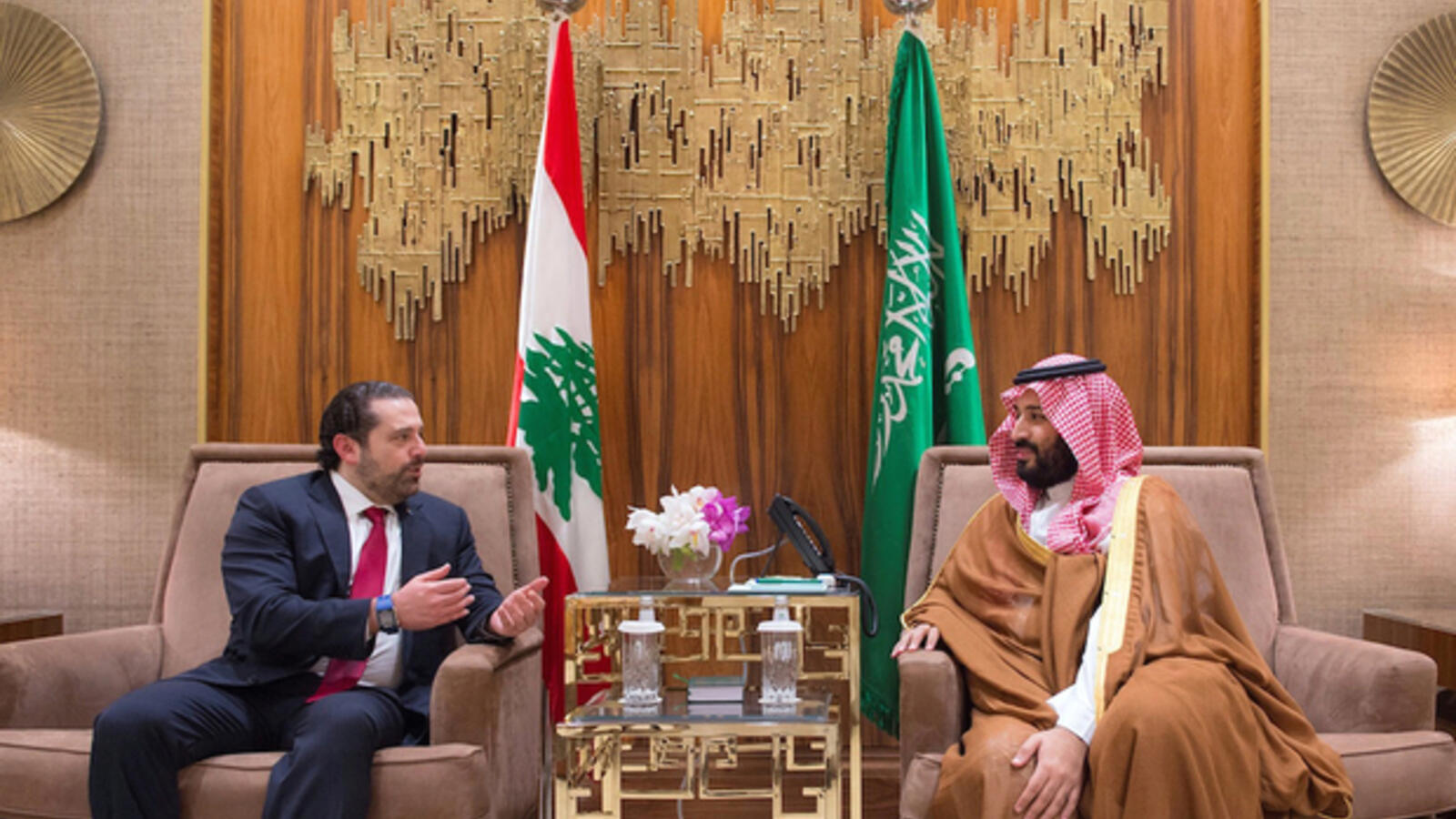Saudi Arabia has long been trying to force Lebanese Prime Minister Saad Hariri to resign because it is not satisfied with his performance vis-à-vis Hezbollah and the Lebanese President. Along the way, the United States also supports Riyadh. Officials at the Saudi embassy in Lebanon dislike Hariri, and they are constantly quoted having said things against him. Riyadh remains angry at Hariri’s refusal to step down two years ago.
Lebanese Prime Minister Saad Hariri, who was in Riyadh on a trip to Saudi Arabia on Saturday, November 4, 2017 read out his recorded resignation on Saudi al-Arabiya TV channel and leveled allegations against Iran and Hezbollah. The resignation was later revealed to have taken place under duress. Upon returning to Lebanon, Hariri resumed his post as the prime minister.
So after the arrest two years ago of Lebanese Prime Minister Saad Hariri in Saudi Arabia and that too on the direct order of Mohammed bin Salman, the country’s crown prince created a rift between Al Mostaqbal (led by Saad Hariri) and Bin Salman. The seizure of $7 billion in property made the Lebanese prime minister to change his policies towards Riyadh. Hariri tried to release his frozen assets by legal means in Saudi Arabia, but failed.
So Hariri appealed to the government of Donald Trump and US Secretary of State Mike Pompeo specifically to help unblock his property, which was ignored by the US officials. Therefore, Saad Hariri has been trying for a year to bring himself closer to President Michel Aoun and the March 8 Alliance and Hezbollah to reduce Saudi influence in Lebanon. Saudi Arabia, with US help, is seeking revenge on Saad Hariri to oust him and reinstate Fouad Siniora as prime minister.
Fouad Siniora was prime minister of Lebanon from June 2005 to May 2008, and during his time, Lebanon suffered a lot of losses and the 33-day war in 2006 coincided with Siniora’s reign. He now seeks to re-emerge in the media after assurances of support by Saudi Arabia and the United States. So Siniora has begun giving interviews and Riyadh and Washington are simultaneously trying to nominate him as the savior of the Lebanese nation. Siniora is heavily dependent on the United States, the Israeli and Saudi regimes and is in serious opposition to the March 8 Alliance.
Meanwhile, it is natural for Saudi Arabia and the United States to have numerous tools to counter the Al Mostaqbal movement; sanctioning some of Saad Hariri’s cabinet ministers, such as Foreign Minister and, Finance and Energy Minister, is part of a crawling US-Saudi effort to portray an inefficient image of Hariri’s cabinet. On the other hand, the March 8 and Hezbollah have expressed their readiness to cooperate with Hariri, indicating that there has been some sort of understanding between the March 8 and Al-Mostaqbal to confront currents affiliated with the US, Saudi Arabia and the Zionist regime. However, it is also likely that Saad Hariri’s positive stance towards the March 8 and Hezbollah movement is tactical and cross-sectional and aimed at pressuring Riyadh to reclaim its blocked property.
There are some scenarios about Saad Hariri’s future and his confrontation with Lebanese Hezbollah. Among these scenarios one is that Hariri may have approached Hezbollah provisionally and tactically to force Saudi Arabia to unblock and protect his property. So if Saudi Arabia releases part of Saad Hariri’s property, it is likely that he will change his position and incline towards Riyadh again. But if Hariri continues to maintain his current position and distances from Riyadh, the United States will seek to oust Hariri in line with Saudi interests and will support Siniora as the Lebanese prime minister.
However, if Fuad Siniora comes to power, he will pave the way for Israel to re-invade Lebanon and create turmoil in the country. Therefore, March 8 and Hezbollah will do their best to prevent this from happening.
The Complexities and the Necessity of Confronting ISIS-Khorasan
Strategic Council Online – Note: With the rise of the Taliban in Afghanistan, the issue of ISIS-Khorasan, the conflict between these two groups, and the expansion of the scope of their security threats in the region have become more critical than ever before, as the terrorist activities of this terrorist group disrupt regional security. In addition to this, support for suicide activities and armed individuals in the region has also put the security of Iran at risk. Therefore, ISIS-Khorasan is recognized as a significant threat to the eastern security of our country.
Dr. Hossein Ebrahimnia – Regional Issues Expert










0 Comments